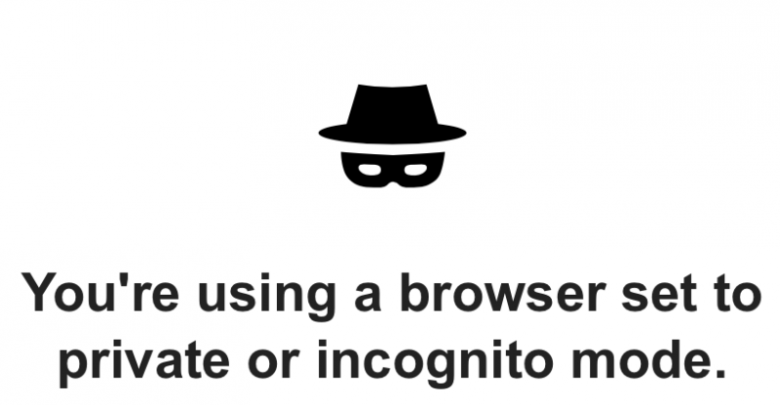Electronics
Chrome 76 prevents NYT and different information websites from detecting Incognito Mode

Enlarge / The Boston Globe and another information websites forestall non-subscribers from viewing articles in a browser’s non-public mode.
Google Chrome 76 will shut a loophole that web sites use to detect when individuals use the browser’s Incognito Mode.
Over the previous couple of years, you will have seen some web sites stopping you from studying articles whereas utilizing a browser’s non-public mode. The Boston Globe started doing this in 2017, requiring individuals to log in to paid subscriber accounts to be able to learn in non-public mode. The New York Instances, Los Angeles Instances, and different newspapers impose equivalent restrictions.
Chrome 76—which is in beta now and is scheduled to hit the steady channel on July 30—prevents these web sites from discovering that you just’re in non-public mode. Google defined the change yesterday in a weblog put up titled, “Defending non-public searching in Chrome.”
Google wrote:
As we speak, some websites use an unintended loophole to detect when persons are searching in Incognito Mode. Chrome’s FileSystem API is disabled in Incognito Mode to keep away from leaving traces of exercise on somebody’s gadget. Websites can verify for the provision of the FileSystem API and, in the event that they obtain an error message, decide non-public session is happening and provides the consumer a special expertise.
With the discharge of Chrome 76 scheduled for July 30, the conduct of the FileSystem API can be modified to treatment this methodology of Incognito Mode detection.
Utilizing the Chrome 76 beta at the moment, I confirmed that the Boston Globe, New York Instances, and Los Angeles Instances have been unable to detect that my browser was in non-public mode. Nevertheless, all three websites have been in a position to detect non-public mode in Safari for Mac and Chrome 75.
Google acknowledged that web sites would possibly discover new loopholes to detect non-public mode, nevertheless it pledged to shut these, too. “Chrome will likewise work to treatment another present or future technique of Incognito Mode detection,” Google’s weblog put up stated.
Change impacts writer paywalls
Google additionally acknowledged that this alteration will make it more durable for publishers to implement paywalls. Many information websites restrict readers with out subscriptions to a sure variety of articles per 30 days, however getting into non-public mode can bypass these article limits.
Google famous that the article-limit mannequin “is inherently porous, because it depends on a website’s capacity to trace the variety of free articles somebody has seen, sometimes utilizing cookies.” Google beneficial that publishers monitor Chrome 76’s influence on readership earlier than making modifications:
Websites that want to deter meter circumvention have choices corresponding to decreasing the variety of free articles somebody can view earlier than logging in, requiring free registration to view any content material, or hardening their paywalls. Different websites provide extra beneficiant meters as a approach to develop affinity amongst potential subscribers, recognizing some individuals will at all times search for workarounds. We recommend publishers monitor the impact of the FileSystem API change earlier than taking reactive measures since any influence on consumer conduct could also be completely different than anticipated and any change in meter technique will influence all customers, not simply these utilizing Incognito Mode.
Incognito Mode isn’t a full privateness system
Whereas Google stated it “acknowledge[s] the objective of decreasing meter circumvention,” it additionally stated that “any strategy based mostly on non-public searching detection undermines the ideas of Incognito Mode.”
“Some want to defend their privateness on shared or borrowed gadgets, or to exclude sure actions from their searching histories. In conditions corresponding to political oppression or home abuse, individuals might have vital security causes for concealing their Internet exercise and their use of personal searching options,” Google stated.
Google’s weblog put up didn’t point out that Incognito Mode has solely restricted makes use of for shielding privateness and that Incognito Mode would not do a lot for somebody attempting to evade “political oppression.” When utilizing Incognito Mode, “Chrome will not save your searching historical past, cookies and website information, or info entered in kinds,” a Google help web page notes. That is helpful for preserving searching exercise non-public from different customers of the identical gadget or Google account however not for hiding your location or identification from web sites and community operators.
In Incognito Mode, “Your exercise is not hidden from web sites you go to, your employer or faculty, or your Web service supplier,” the identical Google help web page says. For extra complete privateness safety, there are techniques like Tor and VPNs—however discovering a VPN that’s each non-public and safe requires a little bit of analysis.

